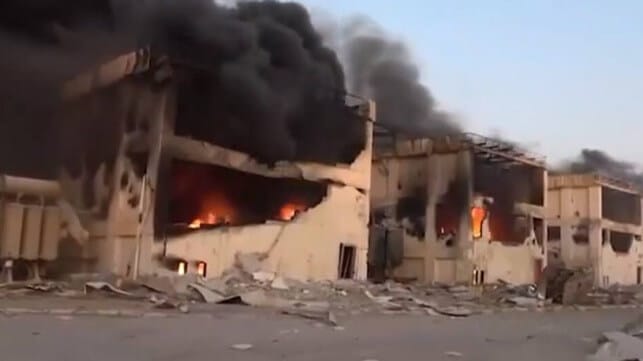Israel Strikes Houthi Targets in Ports, Airport, and Power Stations

The ongoing conflict in the Middle East has escalated as the Israel Defense Forces (IDF) confirmed a series of airstrikes targeting Houthi positions in Yemen. This marks Israel’s fourth retaliation against recent Houthi drone and missile attacks aimed at Israeli territory. The strikes are described as precision attacks aimed at dismantling military infrastructure used by the Houthis, who are believed to be smuggling Iranian weapons into the region.
Israel’s Strategic Airstrikes
The Israeli Ministry of Defense, along with Prime Minister Benjamin Netanyahu, approved the airstrike plan executed by the Israel Air Force. Reports from Yemen suggest that as many as ten targets were hit in the latest round of strikes, following similar operations conducted just a week prior. The initial strikes began in late September, focusing on the strategic port of Hodeidah.
The IDF specifically targeted key locations along Yemen’s western coast, including the ports of Hodeidah, Salif, and Ras Kanatib. Additionally, Sana’a International Airport was struck, resulting in significant damage to infrastructure. Eyewitness accounts and unconfirmed reports from Yemeni television indicated that power stations in the area were set ablaze, and numerous buildings were destroyed. The strikes are part of Israel’s broader strategy to counteract perceived threats from the Houthis, who have increasingly targeted Israel with missile attacks.
Casualties and Reactions
The aftermath of the airstrikes has been devastating. According to reports from Al Masirah TV in Yemen, at least two individuals were killed at the airport, and one person died due to the strikes on the ports. Furthermore, eleven others were reported injured. This follows a pattern of violence, as last week’s strikes also targeted power facilities and vessels operating in the ports.
In response to the escalating conflict, Prime Minister Netanyahu issued a stern warning to the Houthis, stating that they would face consequences similar to those experienced by other groups like Hamas and Hezbollah. The IDF has made it clear that it will not hesitate to act against any threats to Israel and its citizens, regardless of distance. The Houthis, for their part, have vowed to continue their missile operations against Israel, claiming to have launched missiles into central Israel recently. Reports indicate that these missile attacks have resulted in injuries among civilians in the Tel Aviv area, further heightening tensions in the region.
The Broader Implications
The conflict between Israel and the Houthis is not just a regional issue; it has broader implications for international relations and security. The Houthis have openly declared their intent to escalate their operations, and their leader, Abdul-Malik Badr al-Din al-Houthi, has called for public demonstrations in support of their cause. This ongoing cycle of retaliation raises concerns about the potential for a wider conflict involving Iran, which Israel accuses of supporting the Houthis.
As the situation develops, the international community watches closely. The strikes highlight the complexities of Middle Eastern geopolitics, where local conflicts can quickly escalate into broader confrontations. The IDF’s actions reflect Israel’s commitment to its national security, while the Houthis’ defiance underscores their determination to challenge Israeli military power. The coming days will be crucial in determining whether this conflict will further escalate or if diplomatic efforts can bring about a resolution.
